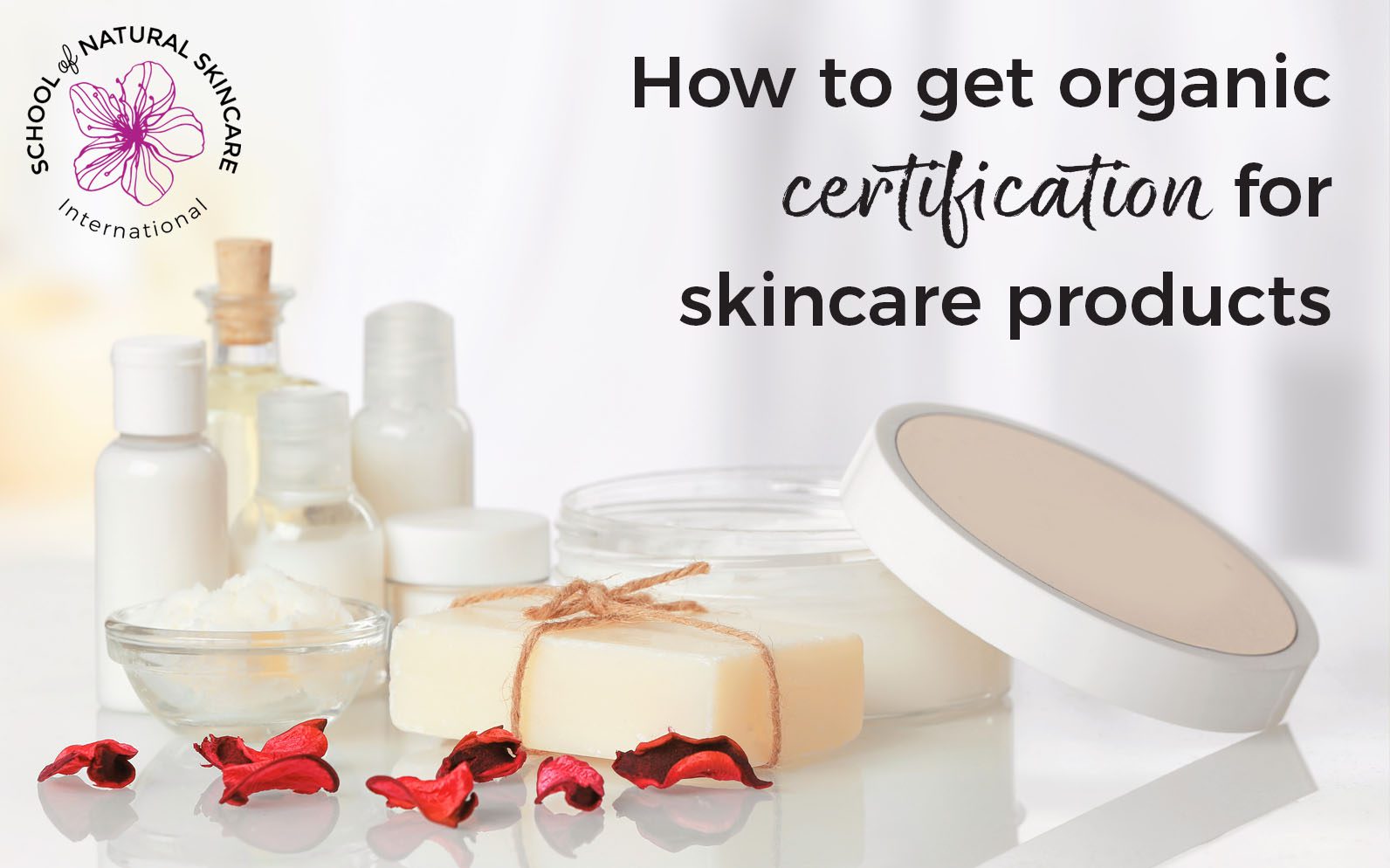
Having your skincare products organically certified can be a strategic move to sell your natural skincare products more effectively and communicate their competitive advantage to consumers. In today’s market, consumers are more knowledgeable and do more research before making a purchase. Many consumers value brands that have the support of certifications from independent governing bodies.
Why Get Organic Certification?
Obtaining organic certification for your products communicates credibility to your consumers. The certification represents a seal of approval, indicating that your products have passed various conditions and qualifications to meet the standards and bear the certification seal.
According to the Soil Association, the primary organic certification body in the UK, and certifier to COSMOS standards, the certified organic and natural cosmetics industry grew by a staggering +34.6% between 2015 and 2016. There is an increasing demand for certified organic and natural products among health and beauty conscious consumers. A recent consumer survey conducted by the Soil Association found that 77% of consumers would be reassured by genuine organic accreditation. Consumers are more likely to purchase an organic product with accreditation and think positively about the brand and retailer stocking that brand.
The Advantages
There are several advantages to having your natural beauty products organically certified:
- Clearly demonstrates organic ingredients: Organic certification clearly communicates that your products contain organic ingredients.
- Sets you apart from the competition: Organic certification gives you a clear competitive advantage for your brand or company.
- Establishes trust: Your brand will bear a recognizable certification symbol/logo that customers can understand and trust.
- Meets consumer preferences: Some consumers specifically search for products that meet the strict standards of organic certification.
Once you see the COSMOS symbol on a Soil Association-certified cosmetic product, you can be sure that Soil Association Certification has reviewed the entire manufacturing process, including sourcing of ingredients, formulation procedures, premises, and packaging. They also consider sustainability, environmental impact, energy and water usage, waste management plans, and marketing messages for consumer clarity. Annual inspections are conducted to ensure continued compliance with the standards.
Disadvantages to Consider
While there are many advantages to organic certification, there are also some disadvantages to be aware of:
- Cost: The process of applying for, meeting requirements, and maintaining certification can be expensive.
- Consumer response: It’s important to determine if your target consumers value organic certification and if they would be willing to pay a premium for your certified products.
- Guidelines and restrictions: Certification bodies often have strict guidelines that may limit your future business decisions or plans.
How to Obtain Organic Certification
When formulating and designing your new natural skincare product range, it is important to research and understand the various organic certifying governing bodies. Determine whether your brand or products will seek certification, and proactively select ingredients and practices that meet the specific certification guidelines you plan to obtain. This can save you time and effort in the long run, as you won’t have to alter your ingredient selection and practices after already being established.
Organic Certification Bodies for Skincare and Cosmetics
There are several main certification bodies around the world, each with different requirements. Here are a few of them:
France | ECOCERT
Ecocert is a globally recognized organic certification body based in France. They align themselves with the COSMOS standard. Certification by Ecocert is recognized in France and around the world. More information can be found on the Ecocert website.
UK | Soil Association
The Soil Association is the primary organic certification body in the UK. They helped develop and certify to the COSMOS standards. The Soil Association website provides clear steps to apply for certification.
USA | USDA
In the USA, there are several important organizations to know about when certifying beauty brands:
- The USDA (United States Department of Agriculture) regulates organic claims for food and offers a seal/logo to those who meet its requirements.
- The FDA (US Food and Drug Administration) regulates labeling for cosmetics.
- The NOP (National Organic Program) regulates and certifies organic foods.
Cosmetic products labeled with organic claims must comply with both USDA regulations for organic claims and FDA guidelines for labeling. The NOP does not regulate organic label claims for beauty/personal care products unless those businesses voluntarily meet organic food standards, gain NOP certification, and use the USDA Organic seal.
There are other organic certification bodies around the world, such as BDIH for Germany and Australia Certified Organic.
Conclusion
Obtaining organic certification for your skincare products can provide a competitive advantage and build trust with consumers. While there are costs and considerations to keep in mind, the benefits of certification may outweigh the disadvantages. Research the different certification bodies and their requirements to make an informed decision about pursuing organic certification for your natural beauty products.
FAQs
-
What are the advantages of organic certification for skincare products?
Organic certification clearly demonstrates that your products contain organic ingredients, sets your brand apart from the competition, establishes trust with customers, and meets the preferences of consumers who specifically seek certified products. -
Are there any disadvantages to obtaining organic certification?
The main disadvantages include the cost of certification, uncertainty about consumer response, and potential restrictions on future business decisions or plans due to certification guidelines. -
How can I have my natural skincare products certified as organic?
While formulating and designing your products, research organic certification bodies and their specific requirements. Proactively select ingredients and practices that meet these guidelines to save time and effort in the long run. -
Which organic certification bodies exist for skincare and cosmetics?
Some major certification bodies include Ecocert in France, the Soil Association in the UK, and the USDA, FDA, and NOP for the USA. There are also other certification bodies around the world, such as BDIH in Germany and Australia Certified Organic.